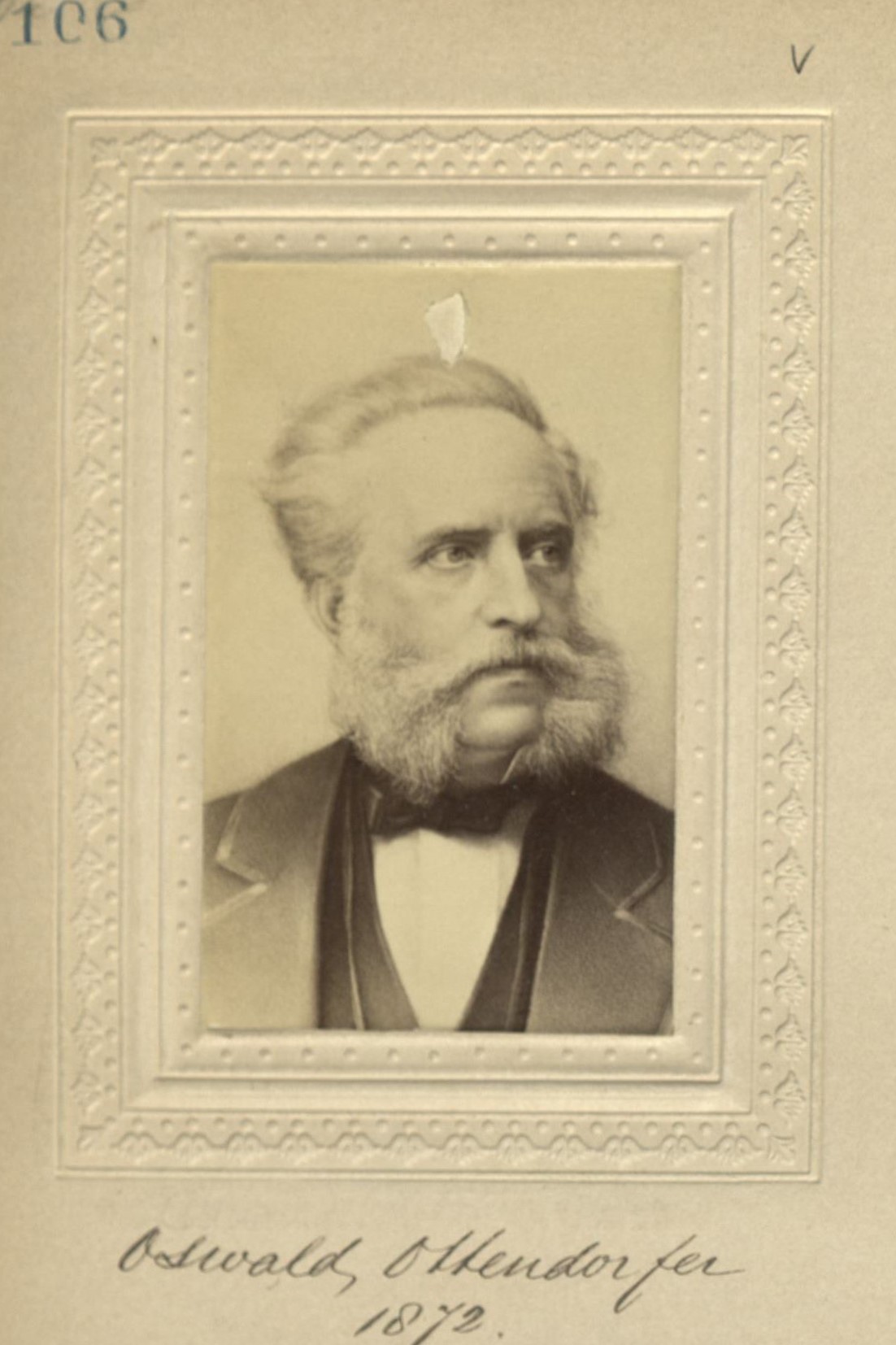Editor, Staats-Zeitung
Centurion, 1872–1900
Born 28 February 1826 in Svitavy, Czech Republic (then Austria-Hungary)
Died 15 December 1900 in New York (Manhattan), New York
Buried Green-Wood Cemetery , Brooklyn, New York
, Brooklyn, New York
Proposed by Edmund R. Robinson, James C. Carter, and Augustus R. Macdonough
Elected 4 May 1872 at age forty-six
Century Memorial
That leading founder of the solid basis on which German social and mercantile life now stands in New York City, Oswald Ottendorfer, came to his manhood in the storm of revolution, in which he was a leading figure, and from which he narrowly escaped with his life. Born in Austria of excellent parentage, carefully educated as a youth at the gymnasium, he was, at the age of 20, a student at the University of Prague, when the tide of liberal opinions was sweeping over Europe, driving kings from their thrones; and he threw himself into the movement with all the ardor that characterized his support of any cause he believed in through his whole life. He fought in Schleswig-Holstein to liberate it from Danish rule; manned the barricades in Vienna in October, 1847; was sentenced to death for high treason; escaped to Saxony; led a revolutionary demonstration in Dresden in 1849, provoking outbreaks in all the cities he visited, and then, persecuted and hunted from his native land, fled to America, where he arrived penniless and friendless in 1850. After a period of distress and discouragement—the usual fortunes of a stranger in a strange land—he became connected with the Staats-Zeitung, the greatest organ of the Germans in America, at first in a subordinate capacity, finally as its editor and owner; and from that time on has been a prominent factor in political, social and philanthropic movements among the people of his race in America, and has filled a unique position in the City of New York. He was a man of great public spirit, with a high sense of duty and perfect integrity of character, always animated by a desire to promote pure government and to resist corruption in office.
Although an ardent Democrat, he was a fierce opponent of the Tweed Ring, a supporter of the War for the Union, and an unflinching advocate of the gold standard. He was a steadfast supporter of principles which he deemed sound, and of causes which he considered important to the public welfare, refusing high offices and declining to take the salary of a smaller one which he accepted as giving him an opportunity for usefulness.
In public life his benevolence was constant, thoughtful and discriminating. With his wife he built and endowed the Isabella Home for Old People, in Tenth Avenue, and the pavilion to the hospital, the Circulating Library and Dispensary in Second Avenue, and erected in his native town in Austria an Orphan Asylum, a Home for the poor, a School, a Hospital, a Library, and other institutions, refusing a high decoration, but accepting a letter of thanks for his generosity from the Emperor, whom fifty years before he had done his best to dethrone. In all respects he was true to the highest standard of citizenship, and his memory will always be honored in the city of his adoption.
Henry E. Howland
1901 Century Association Yearbook

